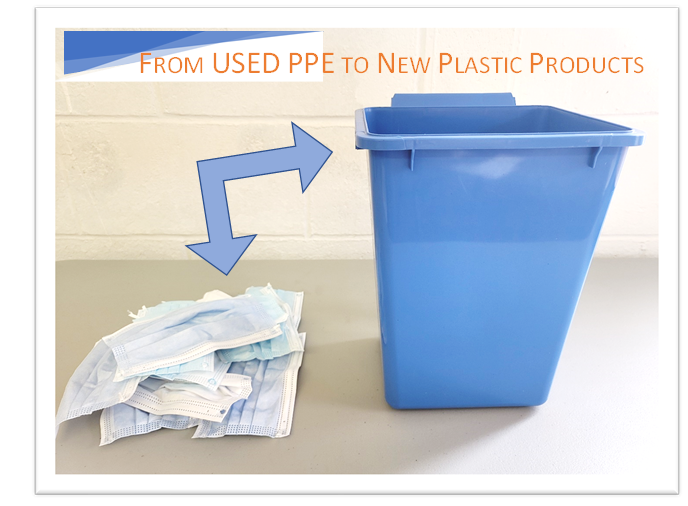Hospitals are the second largest contributors to landfills after the food industry, but it shouldn’t be. Common misconceptions in hospitals is that all waste either in the operating room or in other parts of hospital is considered contaminated when it really isn’t. Cancelled operations, patients attending to a loved one or visiting for a check up and throwing away PPE that they wear over their street clothes contribute to the excess waste ending up in landfills every day.
Eighty per cent of operating room waste is generated before the patient enters the room and most still ends up as biohazardous waste. This waste either gets incinerated or ends up in garbage heaps.
Traditionally, the plastics industry has considered this operating room waste is “clean.” Companies that sell medical consumables like gowns and drapes, neglect to educate their customers on the difference between soiled and contaminated versus clean and excess waste. When you consider the cancellation of an operating room, all this clean waste that sits on back tables cannot be used on the next procedure and ends up in a garbage bag when it should be in a recycling bag. These very fibres usually made from polypropylene five plastic are sought after by industry to be recycled into pellets which then could be melted down and made into other products such as bed pans and trays or now medical grade fabrics to make gowns and masks.
Andy Straisfeld, a former medical sales rep for Kimberly Clark Medical, and is now an internationally podcasted expert on hospital waste recycling and PPE recently said, “There’s gold in the garbage but at the same time, there’s also a prosperity in that garbage if we can eliminate the landfill, if we can eliminate the plastic waste, if we can reclaim that and create industry and give back to Mother Nature and give back to our economy and give back to our to us as citizens, you know, in cost savings to the hospitals, then we’ve achieved everything that we wanted to achieve that everybody’s been crying for.”
Since the onset of Covid 19 and the concern that over 68,000 tonnes of used masks and PPE coupled with over four times as much generated by healthcare in Canada is leading to an environmental disaster, a few companies and associations have entered into the scene to help turn the tide.
Companies like MEA Health and Lifecycle Revive in the PPE/Healthcare space and manufacturing associations like CAPPEM (Canadian Association of PPE manufacturers) are showing responsibility in recycling at the factory, hospital and retail level.
Straisfeld notes that the onus should be on medical manufacturing and suppliers to be part of solution rather than part of the problem. “ When it comes to sustainability, are companies holding customers by the hand? Straisfeld asks. “Sadly, it’s usually a frustrating thing that corporations say,…hey, my job is just to make the product, the person who uses the product, they have to deal with it. No, you got to help that person. You got to take them by the hand and you got to help them understand what there is our there in form of recycling and sustainability options.”
However, organizations like the Canadian Coalition for Green Healthcare and other independent health networks in Canada have been working at developing strategic initiatives in landfill diversion, strengthening supply chain management to purchase “green and sustainable”
At the Federal level, the ISED ministry (innovation, science and economic development) legislation is being drafted to promote “environmentally friendly and compostable fabric and garments” as well as drawing up guidelines for plastic manufacturers to work towards a “zero net” outcome to deal with future waste.
“Canada consumes over six million metric tons of plastics a year. And only nine per cent of it is recycled. That’s a very small quantity… help is here with programs that is going to help the world with a reduction of pollution from the PPE that the pandemic created and generated. But also moving forward… the manufacturing scrap or support is going to generate more plastics for the plastics industry, recycled economy that is going to help plastic manufacturers be competitive,” says Edy Vega, President of MEA Health.
Once challenged to ignore recycled plastics, the North American plastics industry is actively looking for feedstock that healthcare used to churn out by the tonne every hour prior to Covid. Signs are promising, and indications show that healthcare may be entering into a new age of sustainability and environmental stewardship now that industry is seeking to be a willing partner.


